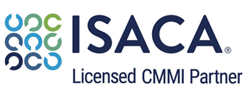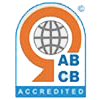HACCP Certification is an internationally accepted system that offers a preventive, structured and low-cost methodology to manage food safety hazards in supply chain. From raw material purchasing to processing, storage, distribution and ultimate sale, HACCP ensures potential hazards are identified and corrected on time. Instead of traditional methods that test end-products, HACCP focus on prevention, which makes it an extremely effective food safety management system. Its process-based approach encourage businesses to define clear procedures, foster effective communication and ensure continuous improvement. This system improve internal operational efficiency and external confidence, as a controlled food environment assures customers about the products safety. Organizations that follow HACCP not only enhance their products safety but also improve relationship with stakeholders, customers, suppliers and regulatory agencies. HACCP can also be integrated quite easily with other quality management systems like ISO 9001, that helps in improving overall business performance. This system is established on seven principles: hazard analysis, identification of critical control points, setting critical limits, monitoring, corrective actions, record-keeping, and verification. These seven principles offers a practical framework that ensure food safety at every step, safeguard the brand and minimizing product loss or liability.
HACCP Certification plays a crucial role in meeting legal requirements and protecting organizations from legal consequences in case of food safety violation. This certification is currently a standards expectation for numerous regulatory authorities and sectors of the food industry globally. Keeping correct records under HACCP plan enables companies to showcase their compliance with food safety law in the long term. These records help food inspectors review safety performance of the business and provide crucial evidence in the event of a food-borne illness outbreak. In such situations, HACCP can be presented as a proof, which demonstrate companys implementation of required guidelines. Apart from legal security, this certification also improves companys reputation within the domestic and foreign markets, as many trade partners and export regulations require HACCP compliance. This standard contributes in building customers trust, improve food quality levels, promote teamwork and organize smooth workflow between departments. With this standard, organizations can achieve greater efficiency, reduced risk of contamination and better implementation of food safety laws. HACCP Certification is not just a compliance tool, as it is also a business strategy that supports public health protection, enhances legal liability and improve firms reputation and sustainability in the food industry.




